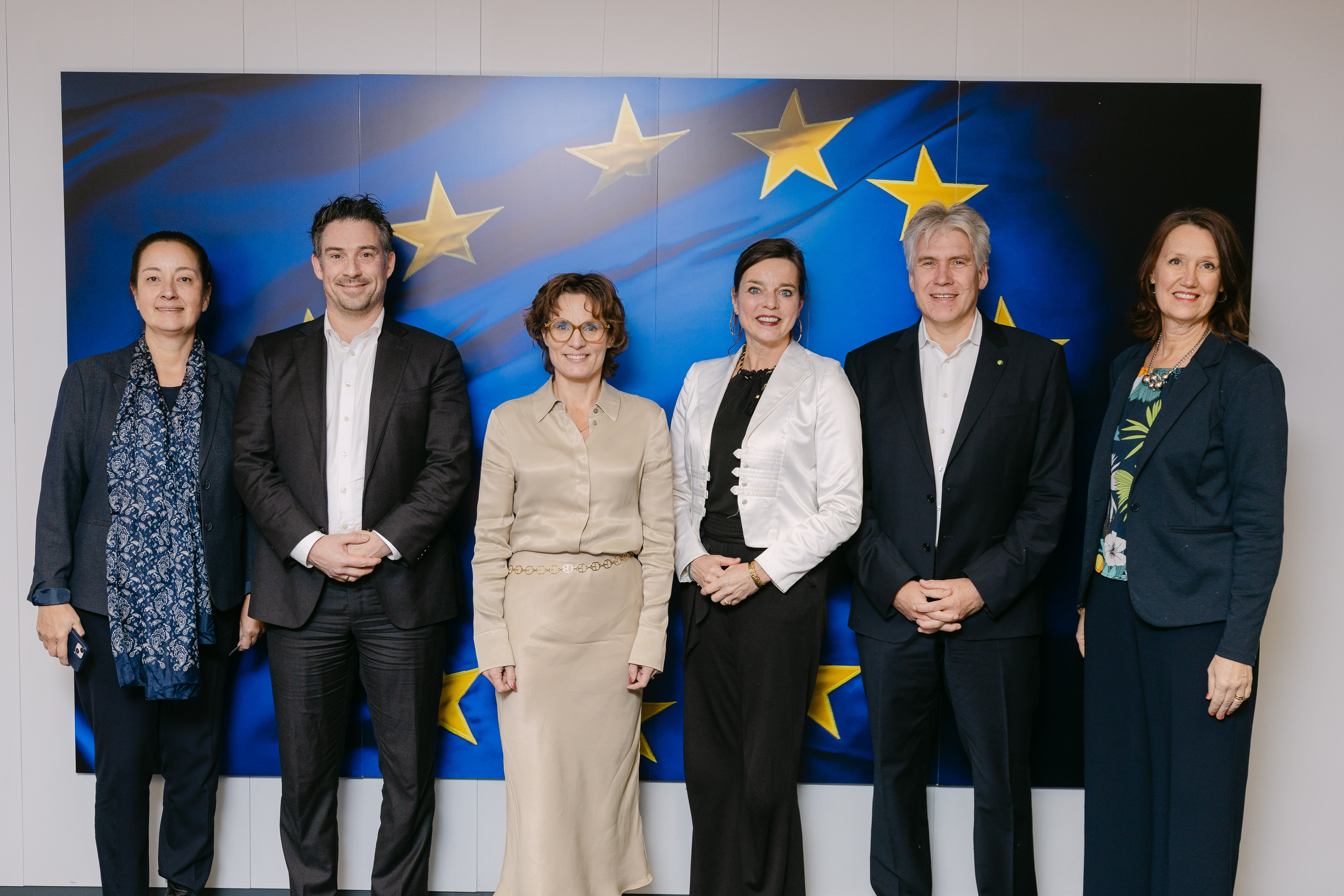
Verpact calls for support for plastic recyclers in Brussels
The Dutch plastic recycling industry is under severe pressure. Low oil prices and cheap imports of virgin plastics from outside the EU are causing recycled plastics to lose ground. This threatens the circularity of packaging and the companies that invest in sustainable technology, innovation and European recycling capacity.
Our CEO, Hester Klein Lankhorst, in her role as chair of the Extended Producer Responsibility Alliance (EXPRA), met with European Commissioner Roswall in Brussels this week. She emphasised that Extended Producer Responsibility (EPR/UPV) systems play a key role in achieving EU recycling targets, provided they can operate in a stable, independent and future-proof manner. EPR systems invest millions in these chains based on their legal responsibility. An important request in this regard is to recognise EPR systems as Services of General Economic Interest (SGEI). This provides legal certainty and thus the peace of mind to make investments. It also offers opportunities for fee modulation, including a lower tariff on reuse and recycled materials.
In parallel, State Secretary Thierry Aartsen called on the European Commission to come up with a strengthened support package for recyclers in the EU in the short term. Without temporary measures, such as trade protection, level playing field regulations and support for innovation, there is a risk of a further decline in capacity and employment in the recycling sector.
Delta Plan for Circular Plastic Packaging: connecting supply and demand
The efforts in Brussels are closely aligned with what Verpact has already set in motion in the Netherlands, with the Delta Plan for Circular Plastic Packaging. This delta plan brings the entire chain together to strengthen the market for recycled plastic. It does so by effectively connecting supply and demand.
Over the past eight weeks, the implementation of the plan has gained momentum. More and more brand owners are joining, producers are sharing their need for recyclate, and recyclers are mapping their available capacity. Roundtable sessions are being held to discuss technical opportunities and bottlenecks, ranging from food safety and design for recycling to colour, quality and consumer acceptance. Our new Matchmaker Recyclate plays a crucial role in this by making concrete matches between producers and processors; the first ones will be finalised soon.
The core of the delta plan is clear: enable greater use of high-quality recyclate, accelerate innovation and invest in processing capacity, supported by reliable cooperation throughout the chain.
The insights we have gathered in recent weeks show that quality, food safety, design, price differences with virgin plastic and limited permit and processing capacity are particularly decisive for success. These findings will be used directly for the further development of fee modulation 3.0, certification and the further professionalisation of matchmaking.
‘Without support, we will lose capacity that we can never get back.’
Hester Klein Lankhorst: ‘We can only scale up circularity if the chain can rely on a stable, fair and future-proof market model. If we do not support our recyclers now and at the same time offer certainty for the future, we will lose capacity that Europe desperately needs — and we will have to adjust our ambitions.’